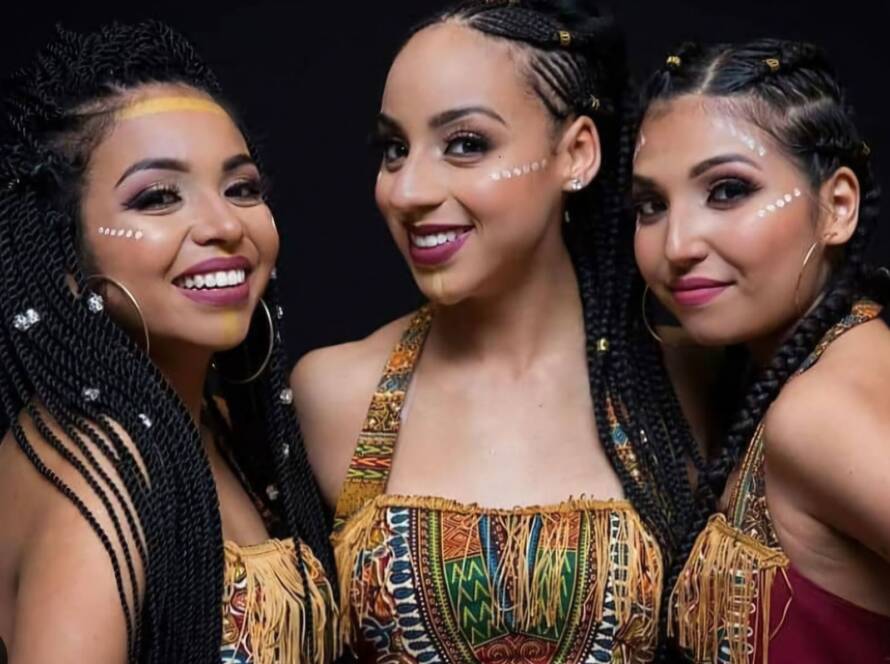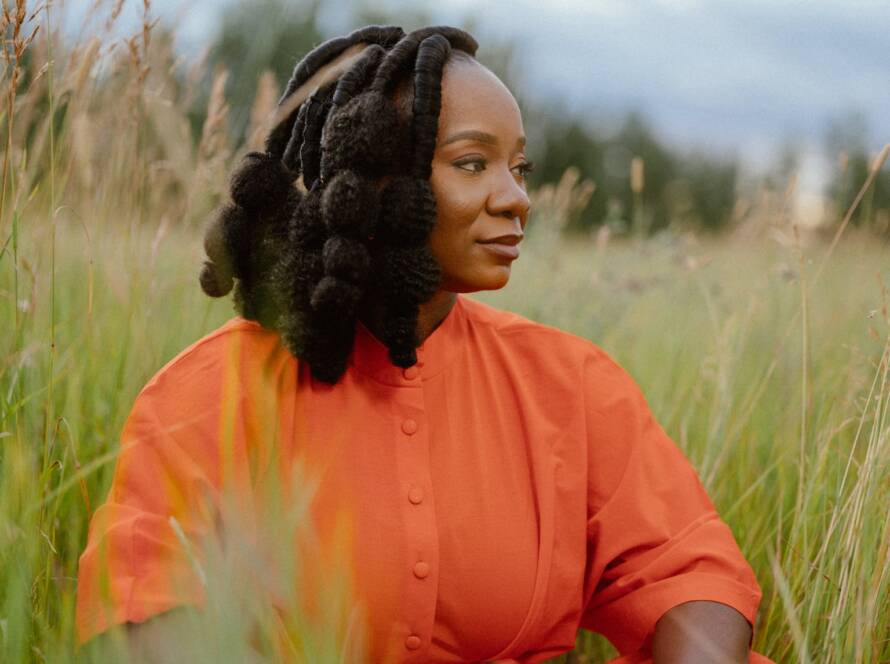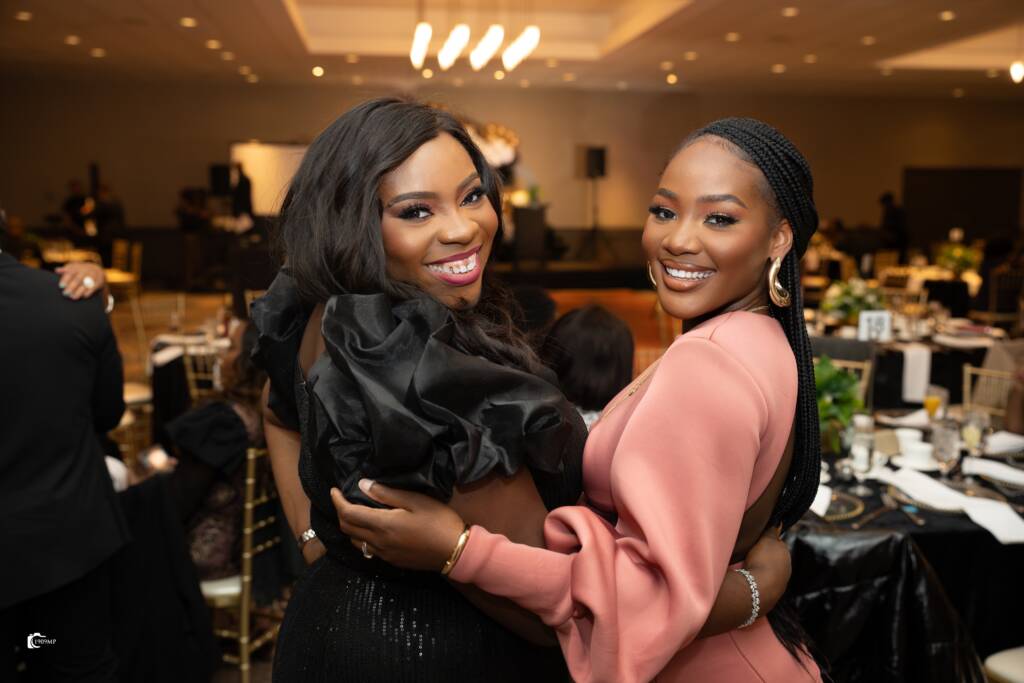The impacts of Gender-Based Violence, GBV, on Black women are compounded by the systemic barriers we face daily, including racism, sexism, and economic inequities. In Canada, our voices have long been overlooked in policymaking spaces, yet we have consistently led efforts to create safer communities.
For many of us, these challenges are not just academic—they are personal. We have felt the weight of the statistics in our families, neighbourhoods, and workplaces. Yet, despite the barriers, we have always been at the forefront of creating solutions. Our leadership, rooted in lived experiences, is redefining how Canada tackles GBV, ensuring that no voice is left unheard.
My Journey: From Global Advocacy to Local Leadership
My own path to advocacy began in East Africa, where I saw firsthand how powerful our leadership can be in addressing gender-based violence. I worked closely with policymakers to create programs that empowered women economically. These initiatives were not merely about livelihoods—they were about restoring dignity and autonomy to women who had been excluded from formal economies. I learned how critical it is to center women’s voices in policy decisions. In North Africa, I designed interventions for displaced women, witnessing the compounded vulnerabilities of those caught in crises. These experiences taught me that addressing GBV requires an intersectional approach—one that acknowledges the complex realities of race, gender, and socio-economic status.
These lessons fuel my passion for amplifying the work of Black women in Canadian governance, who are not only breaking barriers in government but also leading the fight against GBV with courage and resilience. We are not just participants in policy spaces; we are catalysts for change, challenging systems that have long ignored or underestimated us.
The Unique Realities of GBV for Black Women in Canada
Gender-based violence is a stark reality for women across Canada, for many of us, the statistics surrounding GBV are more than just numbers—they represent the lived experiences of our sisters, brothers, sons, daughters, friends, and ourselves. For Black women, the statistics paint an even grimmer picture. According to a 2021 report by the Canadian Femicide Observatory, racialized women account for 40% of all femicide victims despite making up less than 22% of the population. Black women, in particular, are overrepresented among femicide victims. The challenges do not end there. Systemic barriers—such as mistrust of law enforcement, lack of culturally sensitive support services, and the silencing effect of stereotypes—make it harder for Black women to seek help. A 2022 study by Statistics Canada found that 45% of racialized women reported not feeling confident in the justice system’s ability to handle their cases fairly. From language barriers to culturally insensitive services, these obstacles perpetuate cycles of violence. Stereotypes like the “strong Black woman” narrative perpetuate the belief that we can endure endless suffering without support. These harmful tropes discourage many of us from seeking help, forcing us to navigate cycles of violence in isolation.
As Black women, we know these realities intimately. That’s why our leadership in addressing GBV is so critical. When we take up space in government, we bring our lived experiences to the table, pushing for policies and programs that recognize the unique challenges we face.
Black Women Leaders Changing the Landscape
Across Canada, Black women in governance are making bold moves to address GBV head-on. We are not waiting for permission to advocate for our communities; we are driving the conversation and demanding systemic change. Jean Augustine, Michaëlle Jean, Celina Caesar-Chavannes, Rhiannon Hoyle, and Rosemary Brown are few of the black women leaders who paved the way by bringing their intersectionality to the forefront of policy discussions during their time in leadership.
- Make Graph or infographic % of Black women in Canadian Politics – Federal – 4/366 black women , Senate 6/105, less than 1 % provincial MLAs
Our efforts go beyond words. Black women in municipal and provincial leadership roles are driving change by securing funding for women’s shelters, mental health services, and culturally tailored resources. Black community leaders have brought attention to the unique needs of racialized survivors, pushing for trauma-informed practices in public services. They have been instrumental in ensuring survivors from our communities have access to services that meet their needs.
What Our Advocacy Has Achieved
These victories are proof of what happens when we take the lead. But our work is far from over. As Black women, we know that progress can be fragile, and sustained advocacy is necessary to ensure these changes become permanent fixtures in our society.
Our collective efforts are making a tangible difference. Here are some of the strides Black women have made in the fight against GBV:
- Increased Funding: Advocacy has led to more funding for shelters and support services that cater specifically to racialized survivors.
- Justice System Reform: Trauma-informed practices are being integrated into courtrooms and law enforcement, creating safer spaces for survivors to come forward.
- Community Empowerment: Grassroots organizations led by Black women are receiving recognition and resources to continue their critical work.
These victories remind us of what is possible when we take the lead. But they also highlight the need for sustained advocacy.
Challenges We Face as Leaders
While our successes are worth celebrating, it’s important to acknowledge the challenges Black women face when advocating in government spaces. Racism and misogyny are still alive and well, and these dynamics often make it harder for us to do this work. Being the only Black woman, and often only woman, in the room often means carrying the dual weight of representation and resistance and often having to prove your expertise while pushing back against stereotypes. This is the reality for many women in governance and senior leadership. Yet, despite these obstacles, we persist—because our communities depend on us.
Despite these challenges, we persevere. Our resolve comes from knowing that our advocacy is not just about us—it’s about the generations of women who will follow in our footsteps.
MAKE THIS INTO A PULLOUT TEXT BUBBLE “When we lead, we create pathways for others to follow and we ensure that no one is left behind.”
How We Can All Join the Fight
If we want to see lasting change, more Black women need to step into leadership roles in government and advocacy. Programs like Operation Black Vote Canada (OBVC) are working to make this a reality by providing mentorship, training, and resources to Black Canadians interested in public office.
Here’s how we can continue to lead and support each other in this fight:
- Step into leadership: Representation matters. When we step into leadership roles, we bring our experiences and our communities with us.
- Advocate for Policy Change: Support policies and candidates that prioritize GBV prevention and survivor support, and hold leaders accountable.
- Collaborate with Organizations: Collaborate with groups that are already doing the work on the ground, amplifying their impact.
- Mentor the Next Generation: Share your knowledge and experiences with younger Black women, empowering them to join this work.
Conclusion
Black women in Canada are not just survivors of GBV—we are leaders in the fight against it. From pushing for systemic reforms to creating safe spaces for survivors, we are reshaping the narrative and building a future rooted in equity and justice.
But our work is far from over. The fight against GBV requires not only our voices but also the collective strength of our communities. By stepping into leadership, supporting each other, and partnering with organizations driving change, we can create a Canada where every adult and child, regardless of race, lives free from violence.
As I reflect on my own journey, I am reminded of the power of Black women’s leadership. Together, we are more than advocates—we are changemakers. So, let us continue to lead, inspire, and build a future where our communities thrive




